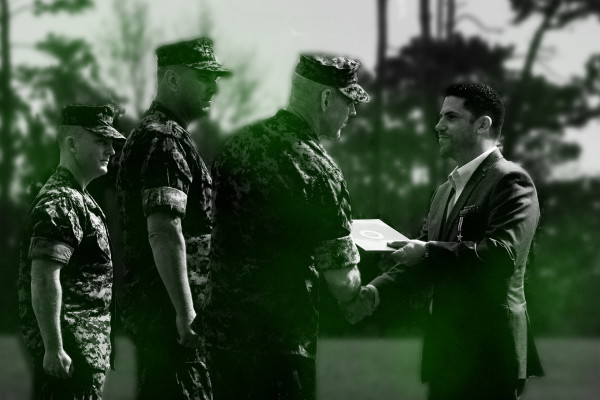UNSUNG HEROES: This Squad Leader Took Command Of A Platoon During An Enemy Ambush
On May 21, 2011, Marine Sgt. Matthew Parker was on a patrol in Helmand province, Afghanistan, in search of enemy...

On May 21, 2011, Marine Sgt. Matthew Parker was on a patrol in Helmand province, Afghanistan, in search of enemy weapons. Parker, a squad leader with 3rd Battalion, 2nd Marine Regiment, set out with the rest of platoon after receiving reports that insurgents in the area had recoilless rifles.
The mission was to find the enemy, identify that they had the weapons, and then call in an airstrike; however, when the platoon began crossing a small riverbed, they suddenly took fire.
According to the Marine Corps Times, the insurgents were armed with grenade launchers, machine guns, small arms, and the recoilless rifles the Marines were looking for. Visually similar to rocket launchers, recoilless rifles fire modified artillery shells.
Parker’s platoon commander and platoon sergeant were injured in the initial volley.
With his unit’s leadership taken of the fight, Parker assumed command and began directing his fellow Marines. A typical Marine rifle platoon numbers 43 Marines and Navy Corpsmen. Parker, a squad leader normally tasked with leading roughly 12 men, suddenly found himself in charge of nearly four times that number.
Related: UNSUNG HEROES: The Marine who was knocked out by an IED, woke up, and began treating his injured men »
Parker rallied the platoon and coordinated the Marines’ fire and movement, close-air support and rocket attacks as the ambush devolved into a pitched battle that lasted eight hours.
After the Marines forced the enemy to break contact, Parker then arranged for the injured Marines to be evacuated.
“Parker is the exact example of what you’re expected to do,” said Col. Chris Dixon, Parker’s battalion commander at the time, in a Department of Defense news release. “You have to take charge no matter the situation and get the mission done, regardless of what it takes to do it.”
For his actions that day Parker was awarded the Silver Star on March 19 of this year, during a ceremony at Camp Lejeune, North Carolina.
“He knew how to coordinate air support, he knew how to coordinate high arms support, he knew how to maneuver forces, he knew how to employ heavy machine guns, and he knew how to employ the organic weapons systems relative to his squads and we won,” said Maj. Gen. Brian Beaudreault, the commanding general of 2nd Marine Division, during the award ceremony. “We won on that day.”
The ceremony took place almost five years since that ambush in Helmand province. Afterward Parker addressed squad leaders now serving in his old unit.
“I just want you to know I appreciate you,” said Parker who medically retired from the Marine Corps in February in 2015. “ I didn’t do anything special; I just did what I was supposed to do and I’m lucky that I had good Marines who were backing me up.”
